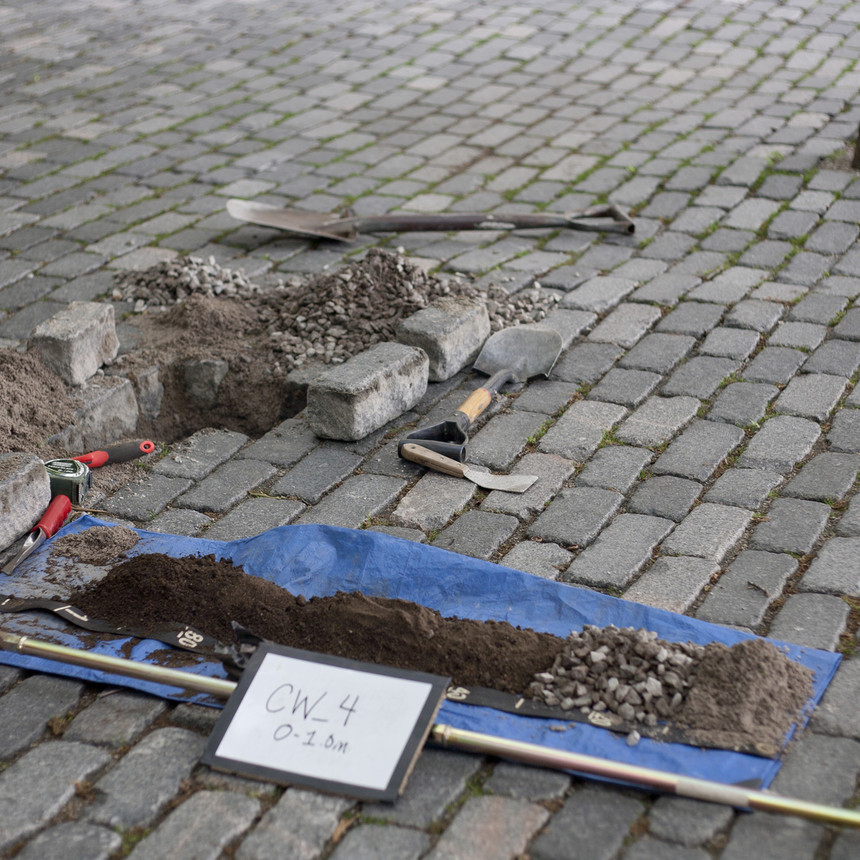Longwood Gardens West Conservatory
Set within Weiss Manfredi’s soaring glass house, the Garden of the West Conservatory brings an entirely new horticultural experience to Longwood’s world-renowned collection of gardens under glass. At 32,000 square feet, the garden and its pools celebrate the character of the Mediterranean where both wild landscapes and cultivated gardens are defined by an inseparable relationship among stone, water and plants.
Longwood’s desire to create a world-class Mediterranean-inspired garden recognized the contemporary importance of understanding global plant communities and the way they have evolved over centuries to thrive in challenging environments – in this case the ability to survive on very little water. Inspired by Pierre Dupont’s love of fountain gardens, The Garden of the West Conservatory is comprised of 3 planted islands fashioned by threaded waterways and pools. The garden’s architecture is expressed as a series of shallow planes that cascade from the level of the guest path into stepped pools. Cast stone bridges hover above the planting, allowing guests the sensation of floating, while brick terraces throughout provide places for gathering or pause. Outside, a 21,000 square foot reflecting pool allows the conservatory to appear to float on water and offers opportunity for warm-season aquatics display.
A MEDITERRANEAN TAPESTRY
With a focus on a permanent collection of plants, the Garden of the West Conservatory celebrates the particular beauty of species that thrive in dry climates, expanding understanding of one of our planet’s most diverse ecozones — its beauty, mutability, and resilience.
Groves of Bismark Palms (Bismarkia nobilis) and Willow Acacia (Acacia salicina) provide scale, shade and a dramatic contrast of character while rows of Italian Cypress (Cupressus sempervirens) and Bay Laurel (Laurus nobilis), provide verticality and moments of hide and reveal. The counterpoint to that more orthogonal structure is a composition of low shrubs and perennials that carpet the islands, including over 60 permanent species representing the 5 global Mediterranean ecoregions (the Mediterranean Basin, Coastal California, Central Chile, the Cape of South Africa and Southern and Southwestern Australia), many with billowy forms and small leaves, reflecting the plants’ way of responding to a climate where water is precious.
Custom stainless steel growing structures including trellises for citrus espalier and vine structures that allow flowering vines to cantilever over the south walk, reflect the Old-World tradition of training plants and put a point of emphasis on Longwood’s own skill in cultivation.
The garden will have different characters throughout the year. At times most of the garden will be in bloom, at others, foliage will be the dominant expression and texture and hue will rule. Those varying expressions will be supported by up to 5 different seasonal components (including over 90 individual species), whose addition will expand the beauty of the garden and the diversity of the guest experience over the course of a year.
A UNIQUE GARDEN UNDER GLASS
The soaring transparency of Weiss Manfredi’s conservatory is in startling contrast to Longwood’s historic houses and reinforces this garden’s unique expression within Longwood’s collection of gardens under glass. Here sunsets and snowfall will change the way visitors experience the garden. It will be the one most fully in conversation with the sky and with the landscape around it.
Location
Kennett Square, Pennsylvania
Dates
2017-2024
Size
32,000 sf
Leadership
Team
- Longwood Gardens
- Weiss/Manfredi
- Bancroft Construction
- JBC Landscape Architects
- Irrigation Consulting
- Dan Euser Watertecture
- Jaros, Baum & Bolles
- Magnusson Klemencic Associates
- Pennoni
- Tillotson Design Associates
- Reg Hough Associates
- Buro Happold
- Atelier Ten
- FRONT
Recognition
- “Weiss/Manfredi and Reed Hilderbrand find new solutions for old problems at Longwood Gardens’ West Conservatory” by Anthony Paletta, The Architect’s Newspaper





